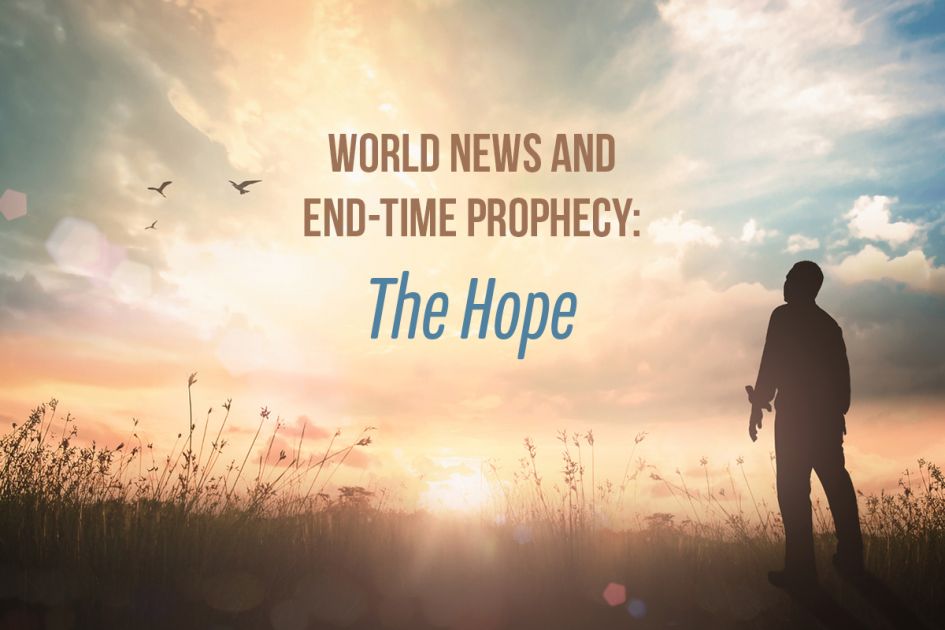Throughout history, humanity has grappled with the concept of the end of the world, an idea that resonates deeply within cultural, religious, and philosophical discourses. As the fabric of society frays under the pressures of technological advancements, environmental degradation, and socio-political upheaval, the intrigue surrounding end-time prophecies has intensified. In the context of Bahá’í teachings, this phenomenon is not merely one of doom; instead, it reflects a profound hopeful anticipation, heralding a new era of existence designed to foster unity and understanding among all humankind.
The Bahá’í Faith posits that the end of the world as we know it is less about the physical destruction of the planet and more about the transformation of human consciousness and societal structures. Central to this perspective is the understanding that each cycle of spiritual and social evolution culminates in a “new world order” that redefines human relationships. Bahá’u’lláh, the founder of the Bahá’í Faith, emphasized that these transitions are part of a divine plan, wherein humanity is progressively guided towards greater peace and collaboration.
One can observe a recurring theme throughout various religious doctrines: the anticipation of an apocalyptic event—a narrative often laden with fear and trepidation. Yet, Bahá’í teachings reinterpret this paradigm; they assert that the culmination of cycles is not inherently catastrophic. Instead, the so-called “end of the world” serves as a prelude to a renaissance of spiritual awareness and societal harmony. This viewpoint offers a tantalizing elucidation for the fascination with prophecy that pervades global consciousness. In essence, the Bahá’í perspective invites individuals to abandon the fatalistic outlook and embrace the forthcoming opportunities for renewal.
The teachings of Bahá’u’lláh eloquently assert that humanity is on the cusp of a significant transformation. Such transformation may evoke a sense of trepidation due to its unknown nature; however, it also embodies the promise of a more just and equitable world. The idea of “the Most Great Peace” emerges from Bahá’í texts, signifying a future realm where harmony prevails—supplying a counter-narrative to the apocalyptic visions that often dominate popular discourse. This harmony stems from the collective effort of humanity to achieve a shared understanding, transcending ethnic, cultural, and religious divides.
The fascination with end-time scenarios often hinges on humanity’s existential questions: What is our purpose? Will we survive the challenges before us? The Bahá’í teachings respond to these queries with an emphasis on the necessity of global consciousness. It posits that through collective action and a conscious commitment to solidarity, individuals can shape the imminent future. This principle underscores the importance of cooperation in addressing pressing global crises such as climate change, poverty, and inequality. Instead of viewing these as harbingers of doom, one can perceive them as catalysts for the awakening of humanity’s latent potentials.
In the Bahá’í tradition, the concept of divine guidance plays a crucial role in navigating the complexities of modern life. The idea that humanity is being steadily guided towards maturity is a comforting beacon of hope. Bahá’u’lláh’s revelations replete with insights about social principles and ethical conduct serve as tools for individuals eager to cultivate a life imbued with purpose and meaning. The anticipation of the end of one epoch—characterized by fragmentation and strife—married with the promise of a new beginning, enshrines hope at the heart of Bahá’í teachings.
Intriguingly, Bahá’í texts encourage an active engagement with both personal and communal responsibilities. This dual focus asserts that individual actions contribute to the broader tapestry of human progress. The transformative energy of love, compassion, and humility becomes not just a personal virtue but a necessary ingredient for societal advancement. To witness the end of the world as we know it, humanity is invited to adopt a paradigm shift towards an interconnected and nurturing existence.
Moreover, the alignment of individual aspirations with collective endeavors fosters a sense of empowerment, displacing the feeling of helplessness that often accompanies apocalyptic narratives. This empowerment is profoundly essential. Rather than succumbing to despair, individuals are galvanized to implement change, thus participating actively in the unfolding of the divine plan. The notion that personal spiritual development correlates with the advancement of society underscores the interconnectedness that Bahá’í teachings advocate.
By addressing the anxieties surrounding global uncertainties, Bahá’í teachings promote a serene acceptance of the transformative processes at play. Efforts towards unity, coupled with selflessness and altruism, become virtuous paths leading to a brighter future. This relational perspective redefines fears regarding the end times into a narrative filled with hope—a hope ripe for engagement and cultivation.
Ultimately, the study of Bahá’í teachings regarding the end of the world serves as a profound reminder of humanity’s capacity for renewal and growth. While the world may seem on the precipice of disarray, the teachings encourage a collective awakening that unites individuals in purpose and vision. Embracing the notion that humanity is on the verge of enlightenment enriches the narrative surrounding end times with optimism, inviting a richer exploration into the possibilities of a future that transcends fear and embraces the values of compassion, collaboration, and unity.
